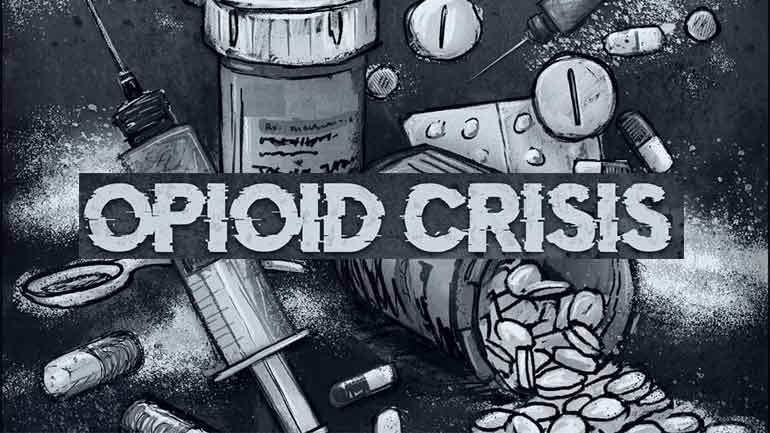
Addiction is a complex and pervasive problem that affects millions of individuals and families worldwide. Overcoming addiction often requires a multifaceted approach that addresses not only the physical dependence on substances but also the underlying psychological and emotional factors driving the addiction. Inpatient addiction treatment, also known as residential treatment, plays a pivotal role in recovery by providing a structured and supportive environment where individuals can work towards lasting sobriety. In this article, we will delve into the vital role of inpatient addiction treatment in the recovery process.
Understanding the Need for Inpatient Addiction Treatment
Addiction is a chronic disease that impacts the brain’s reward system, leading to compulsive drug seeking and use, even in the face of harmful consequences. Given its complex nature, addiction often necessitates a comprehensive treatment approach.
Inpatient addiction treatment is a level of care that involves individuals residing at a treatment facility for an extended period, typically ranging from a few weeks to several months. This type of treatment is recommended for those who:
Face High Relapse Risk: Those with a history of frequent relapses or severe addiction may benefit from the intensive support and structure provided by inpatient rehab.
Have Co-Occurring Disorders: Inpatient treatment programs often integrate mental health care to address co-occurring disorders like depression, anxiety, or trauma that contribute to addiction.
Lack of a Supportive Home Environment: Individuals living in environments where substance use is prevalent or have inadequate support for recovery may find the controlled setting of residential treatment more conducive to healing.
Need a Break from Triggers: Inpatient rehab minimizes exposure to external triggers and stressors, creating a controlled environment where individuals can focus solely on their recovery.
Key Components of Inpatient Addiction Treatment
Inpatient addiction treatment programs are designed to provide comprehensive care that addresses the physical, psychological, and social aspects of addiction. Here are some essential components:
- Medical Detoxification: For individuals with substance use disorders, the detoxification process is often the first step. Under medical supervision, patients safely withdraw from the substance while managing withdrawal symptoms and complications.
- Individualized Therapy: Inpatient rehab offers individual counseling, allowing patients to explore the underlying causes of their addiction, develop coping strategies, and set achievable goals for recovery.
- Group Therapy: Group therapy sessions provide a forum for individuals to share their experiences, offer support, and learn from others facing similar challenges.
- Mental Health Care: Many individuals with addiction also struggle with co-occurring mental health disorders. Inpatient treatment programs integrate psychiatric care and therapy to address these issues simultaneously.
- Structured Daily Routine: A structured daily schedule includes therapy sessions, educational workshops, physical fitness, and recreational activities. This routine helps individuals establish healthy habits and a sense of responsibility.
- Holistic Approaches: Many inpatient programs incorporate holistic therapies such as yoga, meditation, art therapy, and mindfulness practices. These approaches promote overall well-being and complement traditional therapy methods.
- Aftercare Planning: Successful inpatient rehab programs prioritize aftercare planning. This involves developing a plan for transitioning back into the community, which may include outpatient treatment, support groups, and ongoing therapy.
The Benefits of Inpatient Addiction Treatment
Inpatient addiction treatment offers several distinct advantages that contribute to its effectiveness in promoting recovery:
- 24/7 Support: In residential treatment, individuals have access to continuous support and supervision. This immediate support can be crucial during moments of crisis or vulnerability.
- Minimized Relapse Risk: The controlled environment reduces exposure to triggers and temptations, making it easier for individuals to stay on the path to recovery.
- Comprehensive Care: Inpatient programs address all facets of addiction, including physical, psychological, and social components, ensuring a well-rounded approach to healing.
- Peer Support: Living with others who share similar struggles fosters a sense of camaraderie and understanding, creating a supportive community.
- Focus on Self-Care: Inpatient rehab allows individuals to prioritize their recovery without the distractions and responsibilities of daily life.
- Holistic Healing: Integrating holistic therapies enhances overall well-being, teaching individuals coping strategies they can carry into their everyday lives.
- Long-Term Benefits: The longer duration of inpatient rehab programs allows for more profound personal growth, skill-building, and lasting change.
Choosing the Right Inpatient Treatment Program
Selecting the right inpatient addiction treatment program is crucial for a successful recovery journey.
- Accreditation and Licensing: Ensure that the treatment facility is licensed and accredited, indicating that it meets essential standards of care.
- Staff Qualifications: Review the qualifications and experience of the treatment staff, including therapists, counselors, and medical professionals.
- Success Rates: Inquire about the program’s success rates and ask for testimonials from former patients if possible.
- Cost and Insurance: Determine the program’s cost and whether your insurance covers residential treatment. Explore payment options and financial assistance if needed.
- Location: Consider the program’s location, as some individuals may prefer treatment closer to home, while others may benefit from a change of environment.
Conclusion
Inpatient addiction treatment, with its comprehensive care, structured environment, and emphasis on self-discovery, plays a critical role in the recovery process. While the journey to sobriety may be challenging, inpatient rehab provides individuals with the tools, support, and safe space needed to break free from addiction’s grip and pave the way to lasting recovery. It’s a significant step toward reclaiming one’s life, health, and well-being.




